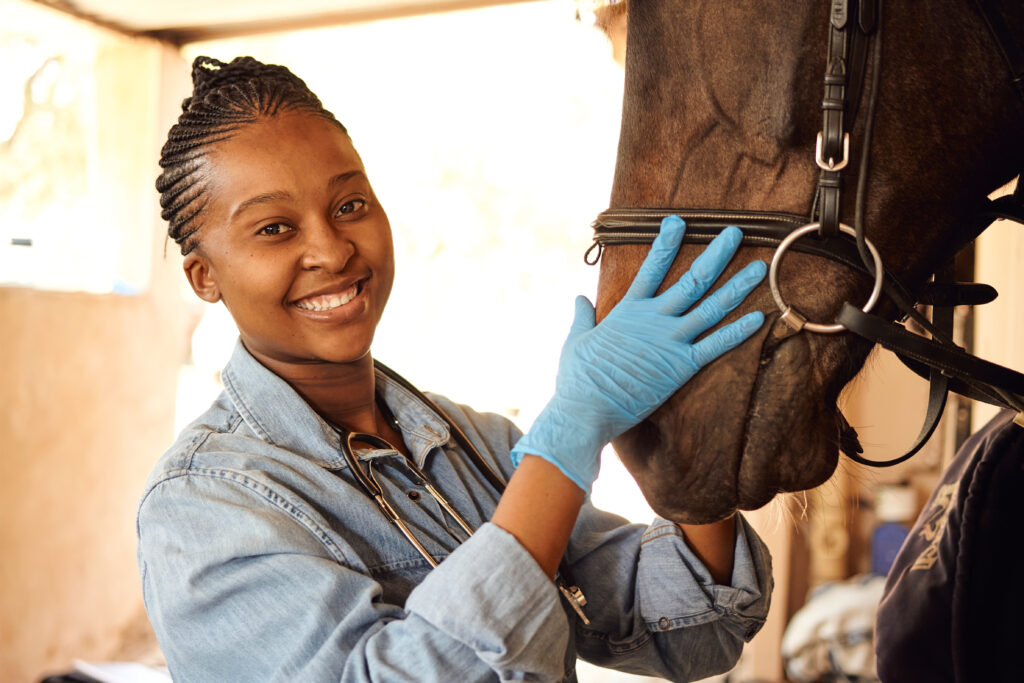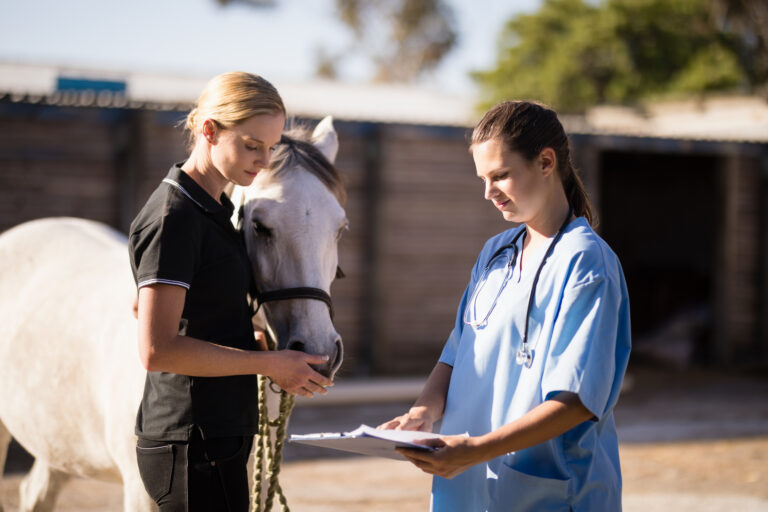
In 2022, AAEP officers appointed members to the Commission on Equine Veterinary Sustainability’s Internship Subcommittee. Jackie Christakos, DVM, and Sarah Reuss, VMD, Dipl. ACVIM, were appointed the initial co-chairs. Currently, Christakos is the chair and Reuss is the officer liaison. Members serving include Drs. Michelle Barton, Rachel Liepman, Zach Loppnow, Ernie Martinez, Ellen Staples, Jesse Tyma, and Tori Martin.
Internship Subcommittee Goals
The subcommittee’s goal was to foster a transparent and ethical internship system that facilitates placing recent veterinary graduates into programs that are mutually beneficial to the intern doctor and the practice, thus setting both up for long-term success in equine practice. In addition, the subcommittee examined all aspects of the current equine internship program and made recommendations for improvement, including determining the appropriate role of the AAEP. The subcommittee considered all internship options, including duration, curriculum, suggested salary ranges, work/on-call schedules, and other potential best practices. The subcommittee also reviewed internship models outside the veterinary profession and suggested technological improvements for interns seeking internships suitable for meeting their goals.
Transforming Equine Veterinary Internships
Unfortunately, some practices that offer internships have business models that use interns as low-paid technicians and provide little formal skill acquisition and mentoring in return. When internship programs require excessive work hours and force interns to meet unreasonable client demands, the unhealthy culture drives many of these new veterinarians away from equine practice and toward small animal practice. For internships to be bridges to great careers in equine practice, there must be a mutually beneficial exchange where the practice takes pride in the mentoring relationship and the intern emerges with the skill set and confidence of a more experienced practitioner.
“I think what we have found in this internship journey is that while the old trope ‘young people just don’t want to work hard’ is thrown around a lot, it is far from the truth,” said Christakos. “Internships are known by all participants to be a challenging year for a good reason, to provide exponential growth of skill sets and knowledge base in a short period of time. And new graduates still look for those opportunities in droves. However, interns want to be learning from a doctor standpoint, not as underpaid/underappreciated labor or to be functioning the majority of the time as an overqualified technician.
“One of the biggest changes that we are starting to see is improved compensation, meaning a more livable salary and benefits package,” she continued. “Interns should not have to take out additional student loans to live during an internship year. That’s just not fair. Additionally, programs need to embrace commitment to true mentorship and education of young graduates in doctor roles. This feels like appropriate compensation for the sacrifice interns make—less salary than a first-year associate in exchange for training, hands-on experience, and support. Practices should be transparent about what the experience truly offers and the hours expected of an intern in busy season. Expectations will not be met on both sides if true transparency is not embraced.”
How Improved Internships Affect Equine Veterinary Retention
When asked how an improved internship experience could help retain equine veterinarians, Christakos said, “It feels a bit like the circle of life. If intern doctors have a high-quality, positive learning experience during their internship year, they will have gained the ability to be an excellent early careerist on their way to confident, high-quality practice. They will want to stay in equine practice not only because they were shown how great it can be despite the demands, but also because they chose the love of the horse over other veterinary career paths in the first place. High-quality equine practices want and need to hire high-quality, well-trained, passionate equine practitioners. Excellent skills often equate to better compensation through enhanced production capabilities and greater fulfillment in practice. Ultimately, better-mentored young veterinarians find the sustainability in equine practice that results in a lifelong career. It benefits everyone in the equine veterinary industry to have excellent internship programs helping polish new graduates into the type of colleague we all want to work with and hire in our practices (or be ready to start their own practice with the skills required to do so successfully).”
Resources
As new paradigms take hold in equine internships, retention rates for early-career veterinarians will continue to increase. The resources available from the Internship Subcommittee can help you foster best practices for interns in your practice. Find them at aaep.org/aaep-equine-veterinary-sustainability-initiative/internships.
Related Reading
- Business Briefs: What Creates a Healthy Internship?
- Incorporating 9 Dimensions of Wellness into an Equine Internship to Avoid Burnout
- Essential Skills for Mentors in Equine Practice
Stay in the know! Sign up for EquiManagement’s FREE weekly newsletters to get the latest equine research, disease alerts, and vet practice updates delivered straight to your inbox.








